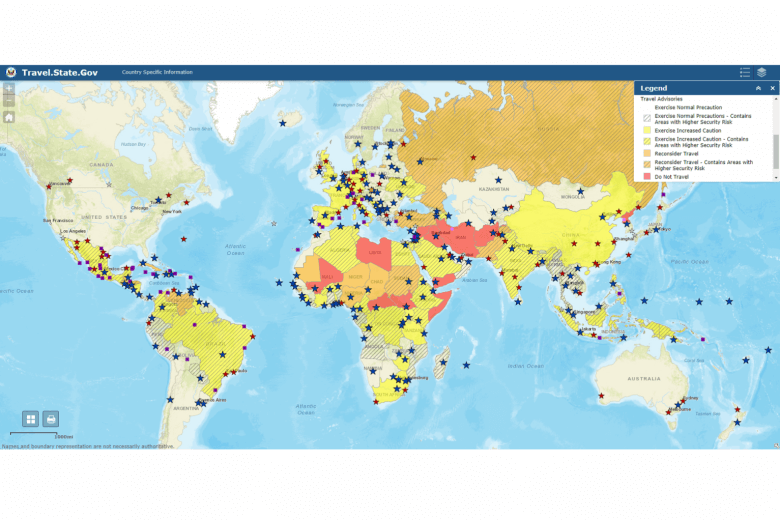Should Americans believe American Travel Warnings or Advisories? President Trump doesn’t really think so.
For many years travel advisories for Americans had been suspected of a half-truth and often politically motivated. U.S. President Trump confirmed this today, possibly putting American citizens in danger in making U.S. travel advisories less legitimate.
For the United States, issuing travel warning against a country for political reasons is like a declaration of war for certain economies.
Here is why:
The Consulate General of Japan in Detroit has warned Japanese residents who may be traveling to the United States in the wake of multiple mass shootings that took place in the country over the weekend. In a statement released by the Ministry of Foreign Affairs of Japan over the weekend, the diplomatic mission warned Japanese residents to “be aware of the potential for gunfire incidents everywhere in the United States,” which is described as a “gun society.”
The President told The Hill after asked about travel warnings issued by countries against the U.S. in response to the recent mass shootings: “Well, I can’t imagine that (countries issuing travel warnings against the USA). But if they did that, we’d just reciprocate.”
What the president just confirmed is that U.S. travel advisories for Americans to travel abroad may only be a half-truth and politically motivated.
Issuing travel advisories for the only reason to retaliate may be equal to terroristic threatening. It confirms the assumption made in the past by organizations like UNWTO or ETOA that U.S. travel warnings are often politically motivated.
Amnesty International travel advisory on the United States of America calls for people worldwide to exercise caution and have an emergency contingency plan when traveling throughout the USA. This Travel Advisory is being issued in light of ongoing high levels of gun violence in the U.S. Dozens of people get shot in Chicago every weekend alone. Last week mass shootings were reported in Ohio and Texas.
The German Foreign ministry warns: “The United States of America was the target of terror attacks in recent years. Be careful in busy cities and during special events.”
Citizens in numerous countries around the world including Venezuela and Uruguay are warning their citizens against travel to the U.S.
The U.S. State Department categorizes countries in 4 different levels from safe to “do not travel.” Would this explain the U.S. thinks travel to Germany or Bahamas is more dangerous than travel to Brunei where American citizens are threatened to be punished by death, caning, whipping or imprisonment if they are LGBTQ?
Obviously, Travel Warnings can have serious consequences for the travel and tourism industry of a country. The United States as one of the biggest source markets for outbound tourism is a powerful giant. When the State Department warns, most citizens are listening. As a consequence, entire tourism economies in target countries are at threat.
With President Trump simply threatening to issue warnings against a country like Japan for the reason or retaliation is taking away the legitimacy of U.S. travel warnings. It could put U.S. citizens in danger when they cannot determine if a travel advisory should be taken seriously or was just politically motivated.
If Japan was to increase warnings, destinations including Guam and Hawaii are at threat, since tourism from Japan is a major factor for their wellbeing.
Twitter http://twitter.com/gunfreeus






